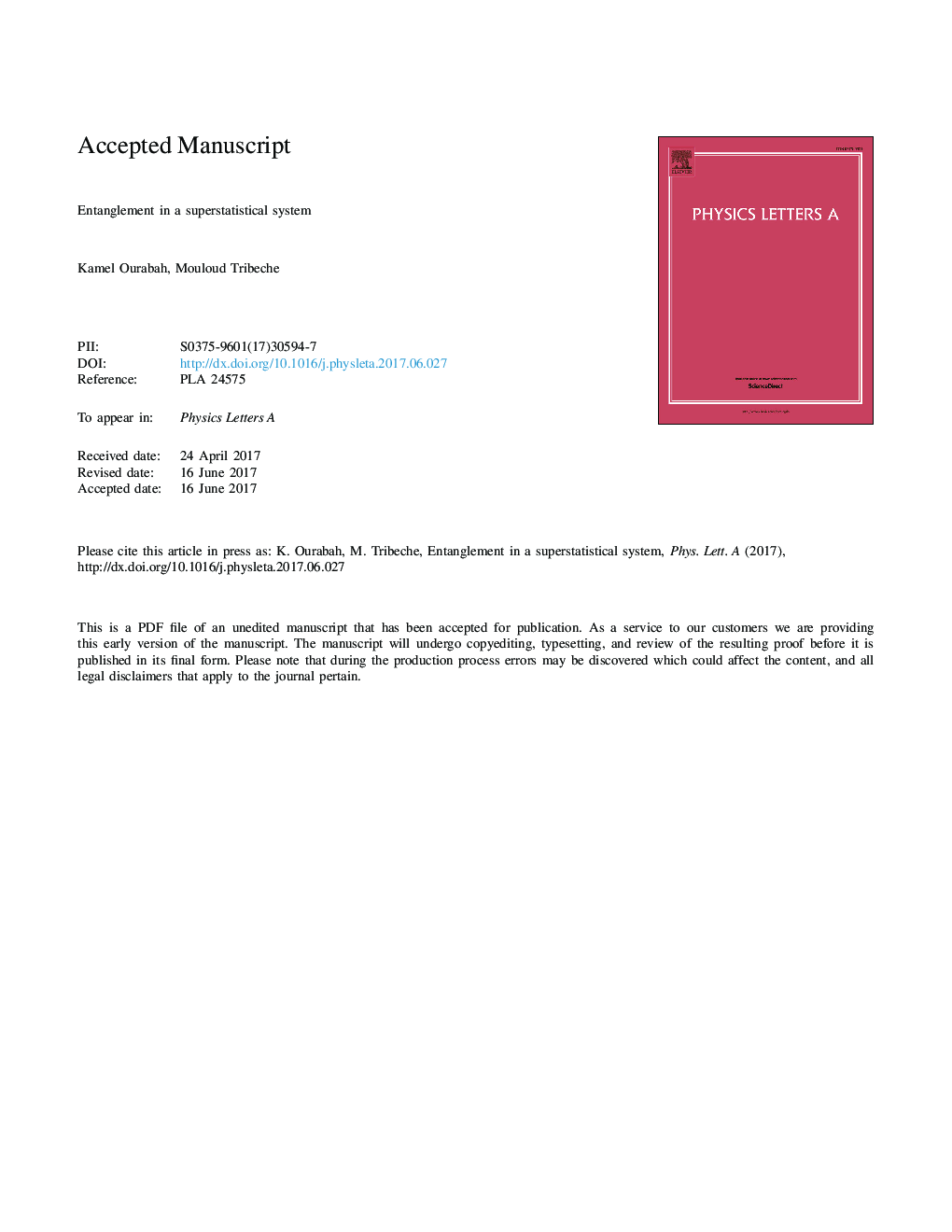| Article ID | Journal | Published Year | Pages | File Type |
|---|---|---|---|---|
| 5496360 | Physics Letters A | 2017 | 30 Pages |
Abstract
Many complex systems exhibiting fluctuations can be described by decomposing their dynamics at different scales. Their statistical properties are then given by a mixture of statistics, i.e., superstatistics. In this paper, we study quantum entanglement in a system, obeying a superstatistical model. Such an approach is expected to be a suitable approximation for a continuously varying temperature field that has a temporal correlation length, much larger than the relaxation time. We consider a Heisenberg chain, subject to temperature fluctuations, and its extension in presence of the Dzyaloshinskii-Moriya anisotropic antisymmetric interaction, and explore the effect of different superstatistics (Ï2, Log-normal, and F distributions) on entanglement. It is shown that temperature fluctuations can prevent entanglement from vanishing at larger temperatures than predicted for the same system at thermal equilibrium.
Related Topics
Physical Sciences and Engineering
Physics and Astronomy
Physics and Astronomy (General)
Authors
Kamel Ourabah, Mouloud Tribeche,
